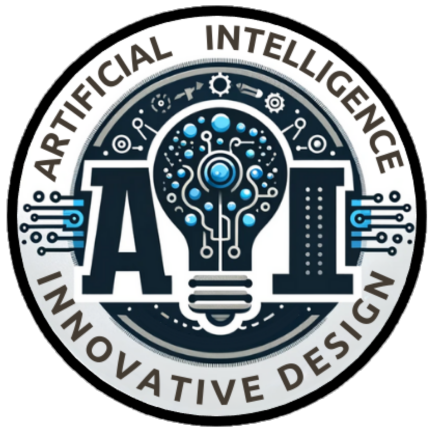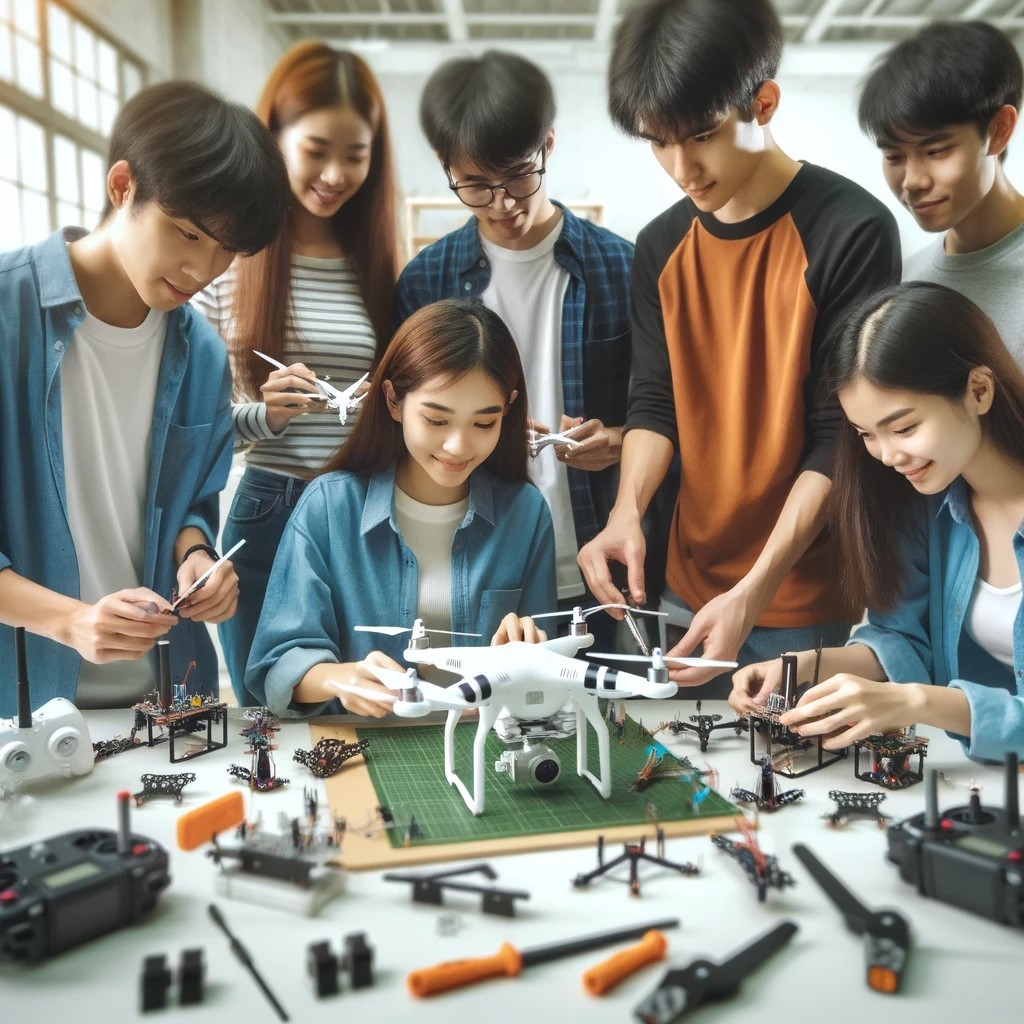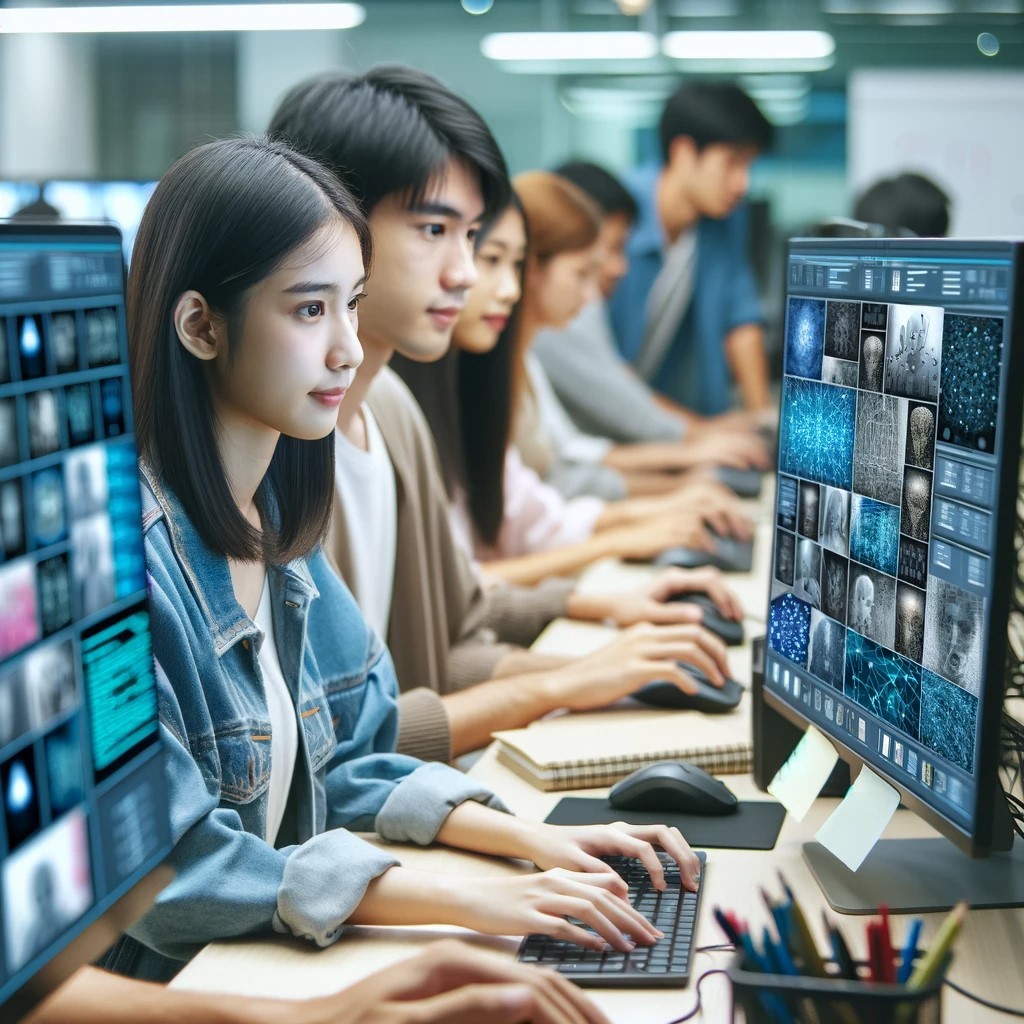【Information on Featured Courses】Courses Leading the Global Trend
The Bachelor Program of Artificial Intelligence Technology and Innovative Design is an academically forward-looking and trendsetting field, focusing on integrating Artificial Intelligence (AI) technology with innovative design applications. This program offers unique and specialized courses to develop students' expertise and practical skills in emerging technology areas. Below are some of the main featured courses:
|
(1) Aerial Photography and Video Production |
|
(2) AI UAV Design and Fabrication |
|
|
|
|
|
This course focuses on image recognition and image object search technologies. Students utilize drones for aerial photography and employ image recognition techniques to analyze and identify specific objects within images. The course encompasses everything from basic flying skills to advanced image processing and object tracking technologies, aiming to enhance students' expertise in high-tech image analysis. This curriculum, blending technology and creativity, equips students to play a significant role in future technology, surveillance, and creative media industries. |
|
This course allows students to design and fabricate Unmanned Aerial Vehicles (UAVs) themselves, focusing on hands-on operation and innovative thinking. Under expert guidance, students will learn drone technology and will practically build and test their own designed drones. This course enhances students' technical skills and develops their problem-solving and teamwork capabilities, establishing a solid foundation for their future careers in the drone industry. As an integrative course, students will apply and synthesize the knowledge acquired from their previous coursework. |
|
(3) Health Services and Smart Technology Applications |
|
(4) Crowd Recognition Statistics & Data Analysis in Cultural Exhibition |
|
|
|
|
|
This course integrates advanced innovative technologies with health services and cultivates students' abilities to improve and innovate healthcare services using artificial intelligence, big data analytics, and Internet of Things (IoT) technologies. Through theoretical learning and case studies, students will understand how to transform these technologies into solutions that enhance patient care and medical efficiency. The course provides technological knowledge and fosters innovative thinking, preparing students to play a key role in the future field of health technology. |
|
This course teaches students how to use artificial intelligence and big data technologies to analyze the behaviour and preferences of exhibition visitors. Students can gain insights into crowd dynamics by learning data collection, processing, and visualization techniques, enhancing exhibition planning and interactive experiences. The allure of this course lies in its combination of cultural domains with advanced technology, enabling students to apply data analysis in actual cultural events and explore the intersection of art and technology. |
|
(5) Intelligent Food Safety Management |
|
(6) Image Recognition |
|
|
|
|
|
This course integrates information technology with food safety management principles, where students employ big data, the Internet of Things (IoT), and artificial intelligence technologies to monitor and enhance food safety levels. Students will learn about tracking the food supply chain, risk assessment, and prevention control strategies. The appeal of this course lies in its practicality and forward-thinking approach. Students will gain hands-on experience and understand how to use advanced technologies to address current and future food safety challenges, preparing them for careers in related fields. |
|
This course delves deeply into the core technologies of artificial intelligence and the field of imaging. A key feature of the course is the combination of theoretical learning with practical examples, where students learn to use machine learning algorithms for recognizing and processing image data. The course not only introduces the basic concepts and methods of image recognition but also covers the latest deep learning technologies, such as convolutional neural networks. Through practical projects, students consolidate their learning and understand the wide application of image recognition in various industries, including autonomous driving, medical image analysis, and more. |












